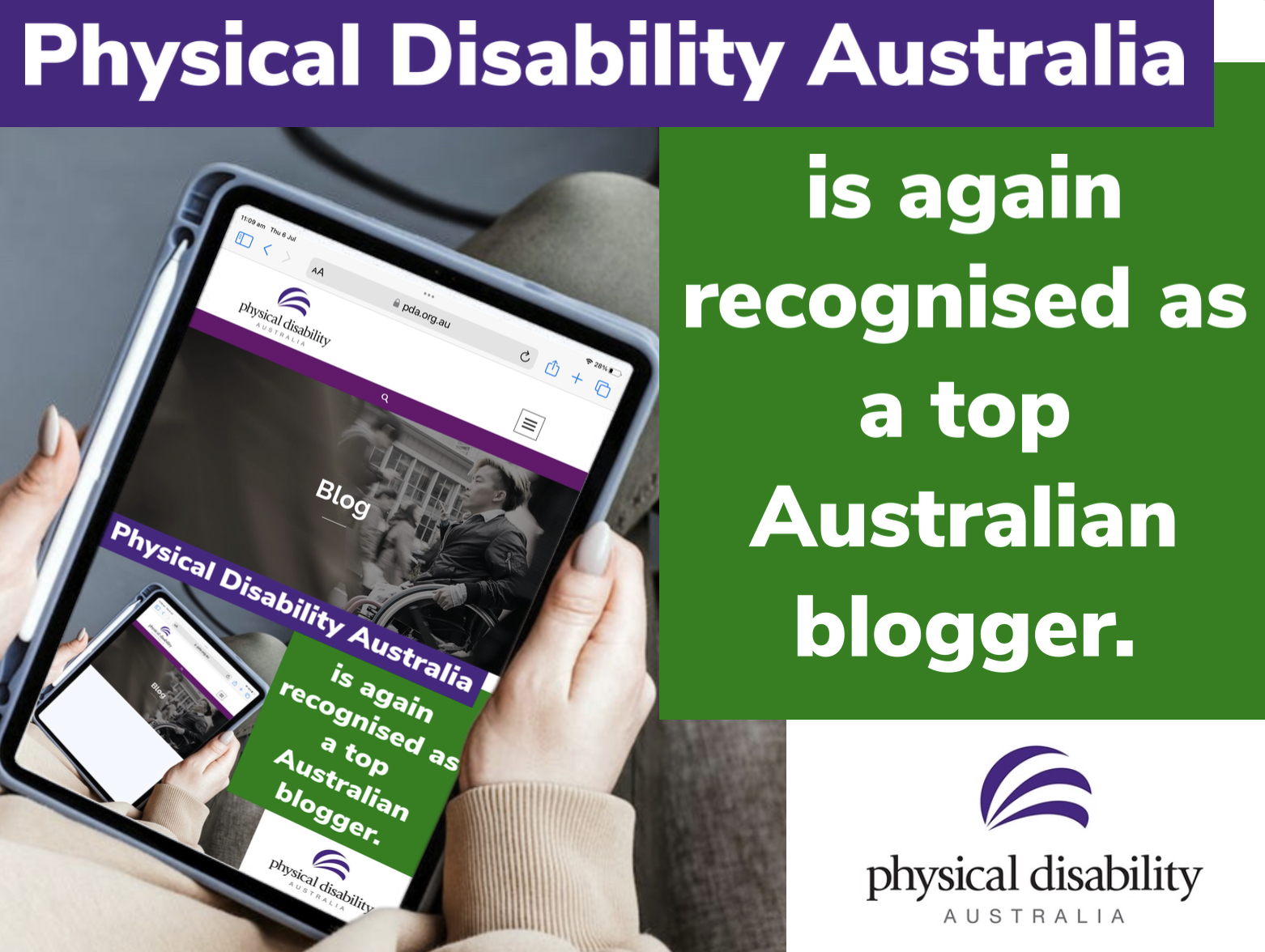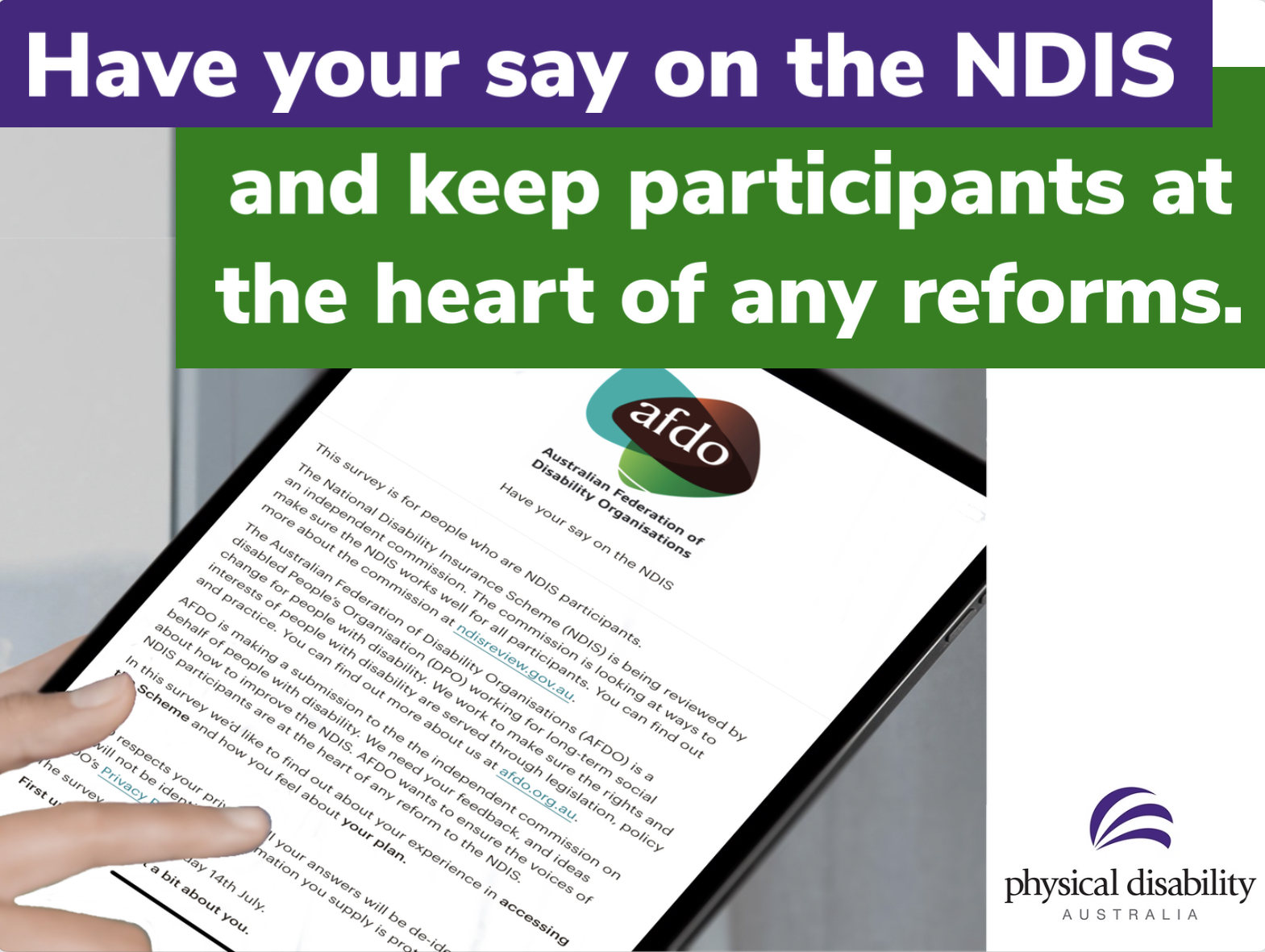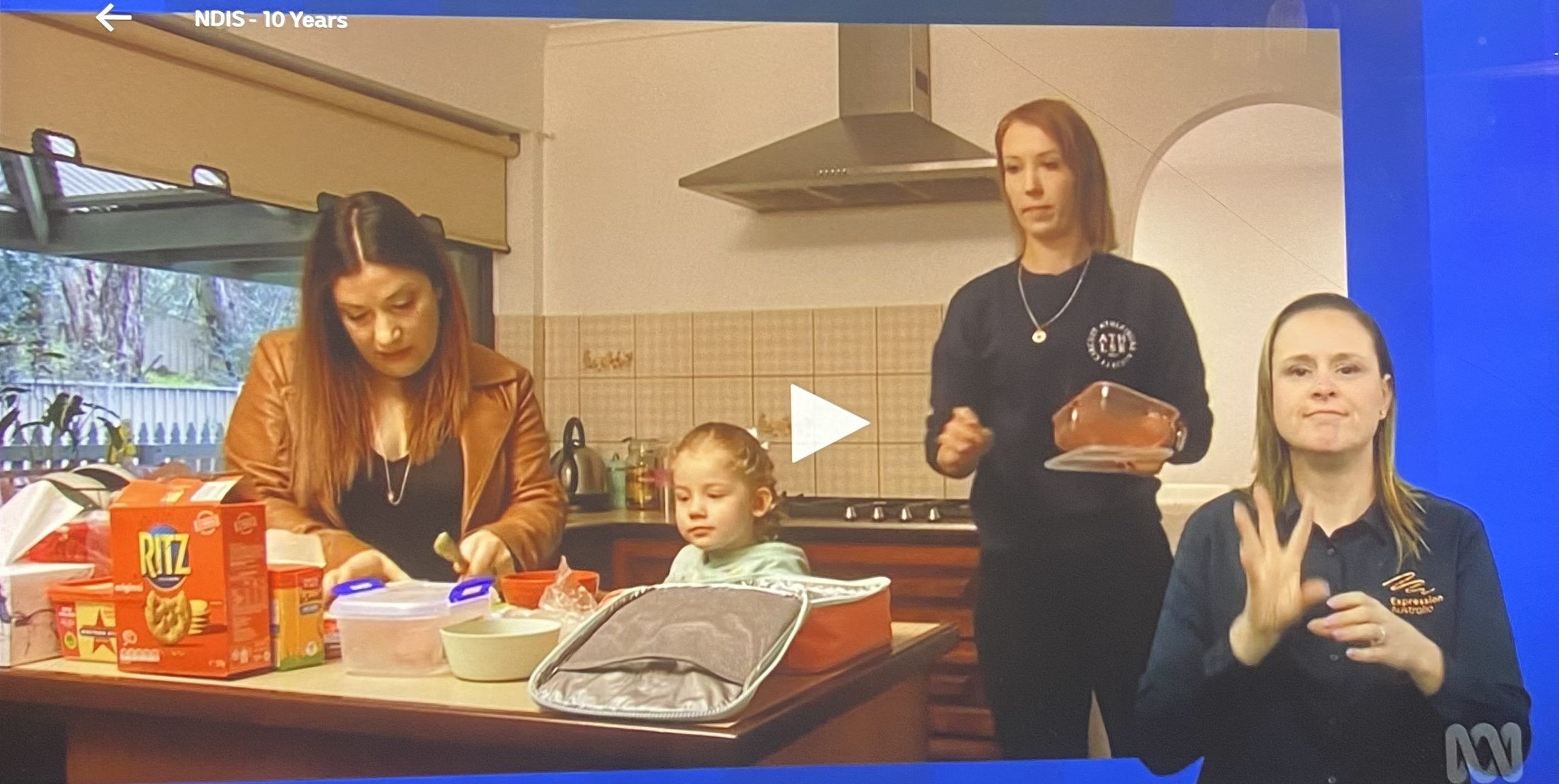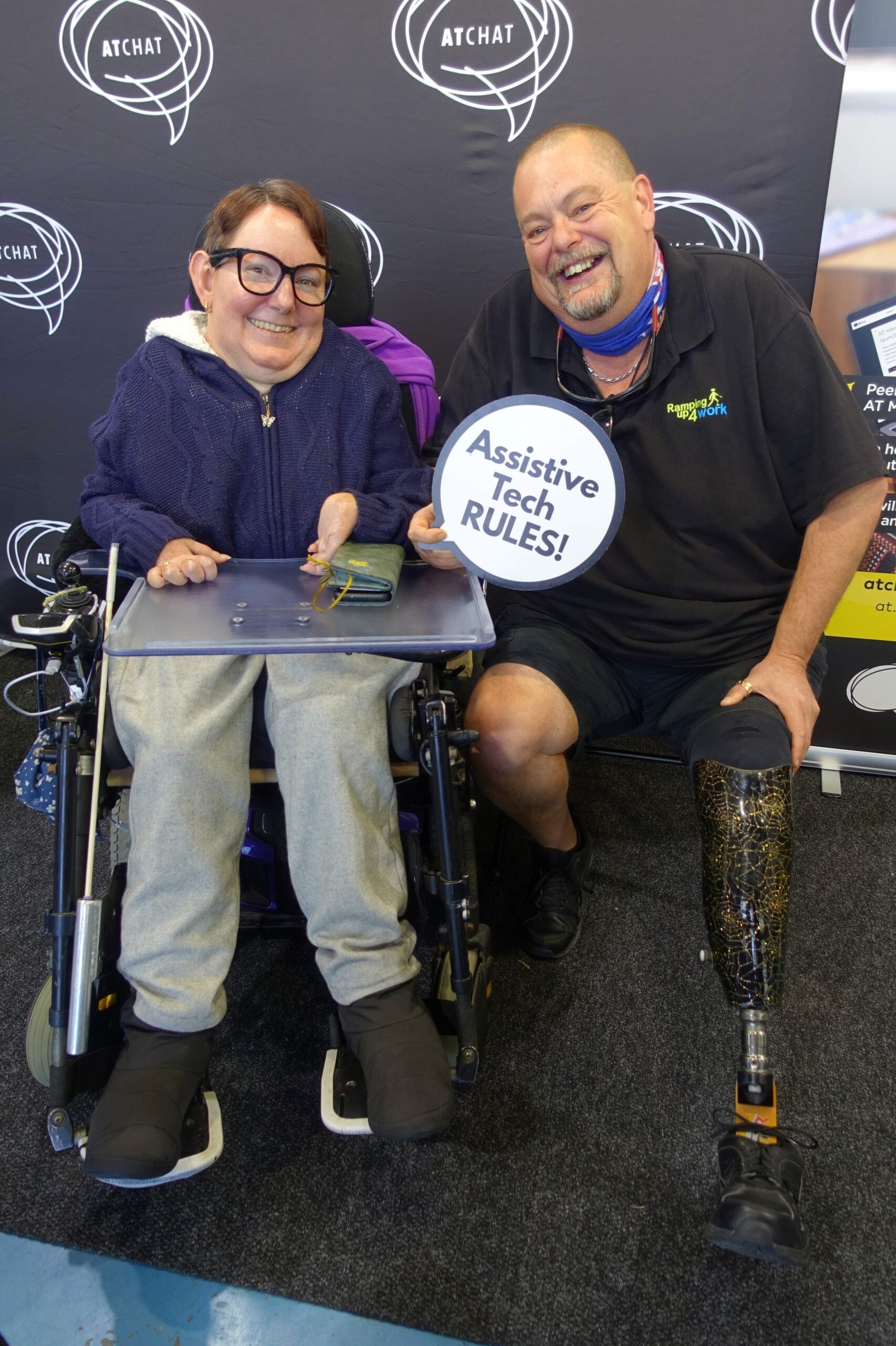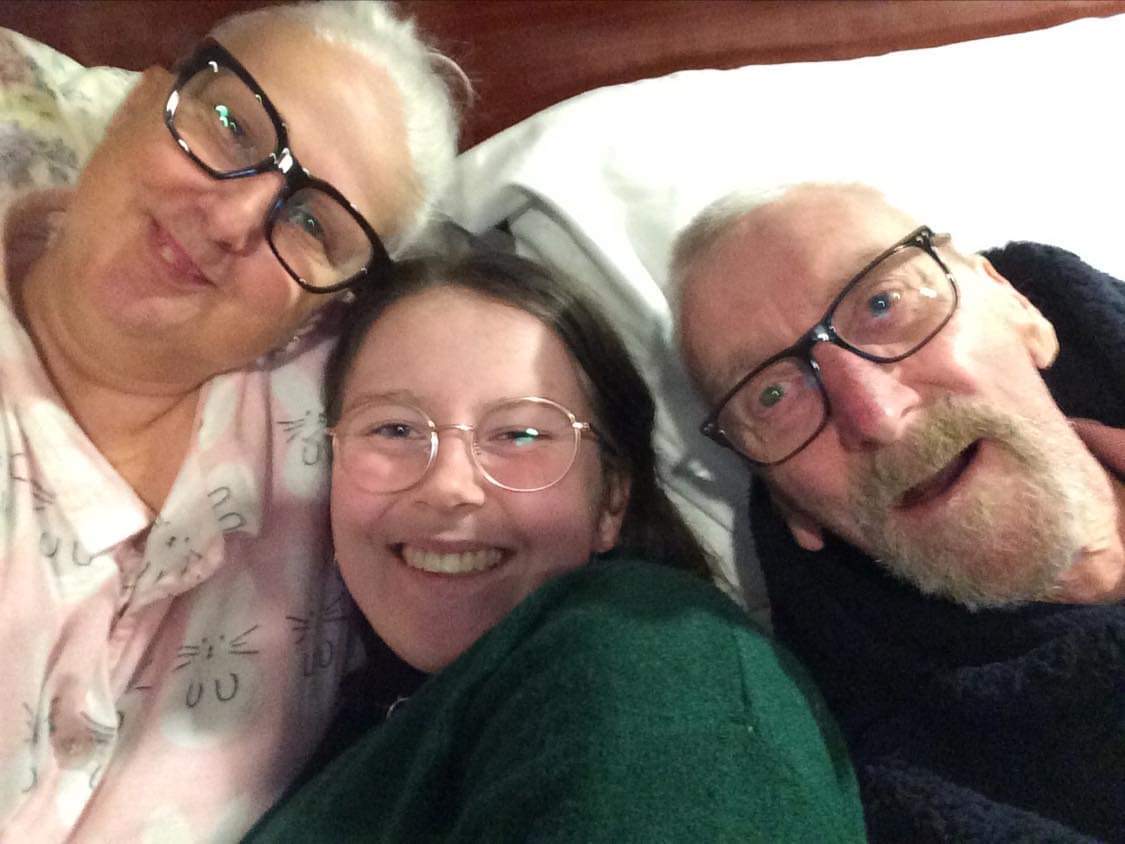Written by Tammy Milne – PDA TAS Associate Director
The social model of disability
I have lived with what others call a disability all my life. I have Arthrogrophosis Multiplex congentia which is not very well known, with many doctors even needing to google it to understand what it is.
I use a wheelchair now, but for many years I walked around using a walking stick and long calipers (leg braces). However, the effort involved took its toll over time and I had to resign myself to the fact that I was now indeed a wheelchair user.
Things have changed dramatically for me. Whereas before I was able to open doors and even drag myself up a couple of steps, now I can’t because as we know wheelchairs can’t fly. Other things changed too. Where once I could go to a regular toilet (of which there are thousands, millions in the community), now I had to seek out accessible disability bathrooms (which are not as common). Even doing one of my favourite activities became a problem, op shopping! Do you know how many op shops are inaccessible? And don’t get me started about shops in general out there. Geesh! There is still a long way to go in the talks and provision of accessibility.
But even with challenges such as these, there are times where I can forget I have a disability. I am simply me and when things are going great, I forget. This is when the social model of disability is working perfectly. So what is the social model of disability you ask?
“The social model of disability seeks to redefine disability to refer to the restrictions caused by society when it does not give equitable social and structural support according to disabled peoples’ structural needs.“ (Pam Thompson et al 2012)
So basically, this explains why I forget I’m disabled at times. If I can smoothly traverse my day with no manmade obstacles to stop me, then I am not disabled. If I can get to a toilet, if I can go to the shops I want, if I can just go about my business like everyone else, then am I disabled?
It’s only when access is denied by obstruction that I become frustrated and rail at the unfairness of it, not just for me but for everyone like me.
Yesterday I got a takeaway coffee and googled the nearest fenced dog park. My doggies, my support worker and I were going for an adventure and some much needed outside time on this barmy (for Tasmania), sunny 17 degree day.

We arrived at a beautiful tree lined park with thick green grass and doggos everywhere bouncing around after balls and socialising with each other as their people socialised with the other humans. We parked the car between the trees to get close enough so that I didn’t have to traverse much of the rough gravely dirt to get to the gate, but then we saw the gate. There was a small step. Even though it was small, as I said before wheelchairs don’t fly. I could not enter. I was frustrated! I sat in the car and watched through the window as my doggos enjoyed the park. I could not join them. These are the times I feel disabled! These are the times when society has built infrastructure that excludes me.
Not being a shy flower, I instantly rang the council to point out this discrimination. The response I got was “gee that park’s been there for years, no one has said anything before this.”
I responded with well something needs to be done now.
The reason why no one has complained about the access issues in the past could be attributed to a number of reasons; the emotional labour it takes a person with disability to constantly ask for solutions to barriers takes its toll and there is only so much we as individuals can speak up about. Another reason, people with disabilities simply don’t know their rights – under anti discrimination legislation, access is not to be denied to PWD. It is your right to enter just like everyone else. The last reason could be a council issue. For all the access and inclusion committees put in place by councils these days, the work simply isn’t filtering down to the ground, like the actual bricks and mortar of the council area. Policy is one thing, but action is another.
The takeaway from this story is that we need to be striving to make sure access is not denied. The social model of disability is a reality, disability is a construct. That is, our environment makes us more disabled than others simply by the way things are built around us. I want to continue to live my life day to day forgetting I have a disability. For this to happen at the moment, a lot of people like me need to speak up about the issues and constraints in their communities, such as access to my local dog park. We should not be denied.


